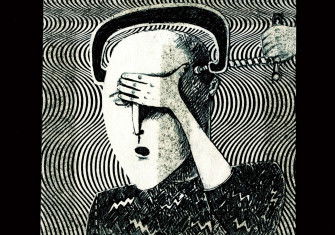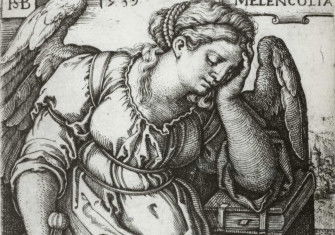It’s Exhausting
What do attitudes towards fatigue reveal about morality and illness?

This past year or so has revealed the multiple dimensions of fatigue. It is one of the many possible symptoms of Covid-19 and it can linger. Lethargy can last for weeks, even months, after the more common identifying markers, like fever and a cough, have abated. Even those who have managed to evade the virus have probably felt sluggish at some point. A kind of collective lassitude has accompanied the palpable anxiety, stress and fear. There has also been much talk of ‘pandemic fatigue’ – a loss of interest in, and adherence to, lockdown and social distancing measures. All this weariness makes now the perfect time for a book about fatigue, especially one as deft as Emily K. Abel’s Sick and Tired.
Abel constructs her history around her own experiences of ill-health and exhaustion. Ever since she was diagnosed with breast cancer in 1993, she has felt an overwhelming fatigue. She writes about how her enervation has shaped and constrained her life, the reactions of her doctors, friends and family, and her efforts to make sense of this new condition. She chronicles cultural attitudes towards fatigue, the historically specific nature of these approaches, and past and present efforts to address the kind of lethargy she experiences.
Writing this book, it seems, was itself an attempt to process her own exhaustion and the last chapter explores the academic disciplines and social movements that helped her to recalibrate her feelings about fatigue. As a result, this is a deeply personal and presentist book. Presentism is sometimes seen as the historian’s cardinal sin, but this book is what second-wave feminists called presentist in the ‘best sense’. Not a flimsy anachronism, but an empathetic and rigorous attempt to understand the historical origins of things that continue to shape the lives of people today.
This is a slim volume, but it is full of thought-provoking ideas. Especially interesting is Abel’s exploration of the cultural emphasis on productivity and how stigmatising debates about fatigue are threaded through with poignant questions about work and morality. Sick and Tired is not just a medical history, but an account of capitalism and its physical and emotional consequences. These questions are particularly pressing now, as many organisations reconsider the post-pandemic workplace.
The book returns, again and again, to the relationship between mind and body. Abel’s fatigue leaves no physical trace, it cannot be picked up by scans or blood tests and while it began with a tangible disease – breast cancer – it remained after her other symptoms ended. She writes with care about how difficult it is to divorce yourself from the powerful notion that modern medicine has a ‘cure for every affliction’. She describes how she remains uncertain whether her fatigue is ‘all in her head’ and the repeated efforts of friends and doctors to categorise her feelings as a psychological aberration or illness, like post-traumatic stress disorder or depression. Fatigue is one of many things that sit at the uneasy intersection of the physical and the psychological.
Readers seeking a straightforward history might be disappointed – only one chapter is dedicated specifically to the past – but historical questions and ways of thinking suffuse Abel’s writing. What emerges is a convincing model for how to produce meaningful and politically engaged medical histories, stories that have only become more pertinent in the age of Covid-19.
Sick and Tired: An Intimate History of Fatigue
Emily K. Abel
University of North Carolina Press 206pp £15
Agnes Arnold-Forster is the author of The Cancer Problem: Malignancy in Nineteenth-Century Britain (Oxford University Press, 2021).






